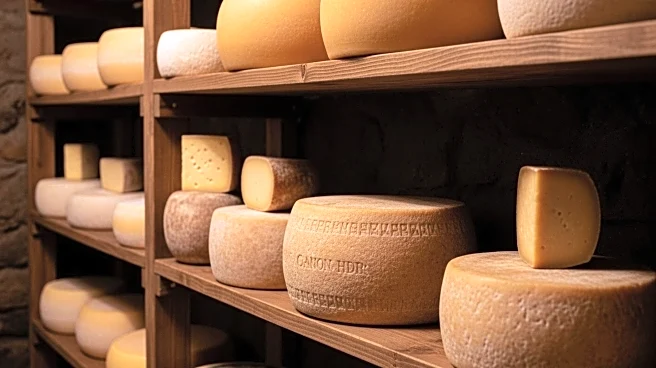What's Happening?
Cheese producers in Italy and Switzerland are facing challenges due to tariffs imposed by President Trump on EU exports to the US. Parmigiano Reggiano producers in Italy, like Giuseppe Alai, are dealing with a 15% tariff, while Swiss Gruyère producers face a 39% tariff. These tariffs have led to reduced orders and concerns about long-term trade impacts. The Parmigiano Reggiano consortium is exploring promotional strategies, including partnerships with American football teams, to mitigate the effects. Swiss producers are considering reducing production and exploring new markets.
Why It's Important?
The tariffs have significant implications for the cheese industry, affecting export revenues and consumer prices in the US. Italian and Swiss producers are concerned about maintaining their market share amid increased costs and currency fluctuations. The situation underscores the complexities of international trade agreements and their impact on traditional industries. The tariffs may also influence consumer preferences, potentially leading to increased demand for locally produced alternatives.
What's Next?
Cheese producers are likely to continue adapting their strategies to cope with the tariffs. The Parmigiano Reggiano consortium's initiatives in the US may help sustain demand, while Swiss producers may need to diversify their markets. The ongoing trade dynamics between the US and EU will be closely monitored, with potential adjustments in tariffs or trade agreements influencing future decisions.
Beyond the Headlines
The tariffs highlight broader issues in international trade, including the balance between protecting domestic industries and fostering global commerce. The situation raises questions about the sustainability of traditional manufacturing processes and the role of cultural heritage in global markets. Producers may need to innovate and emphasize the unique qualities of their products to remain competitive.









